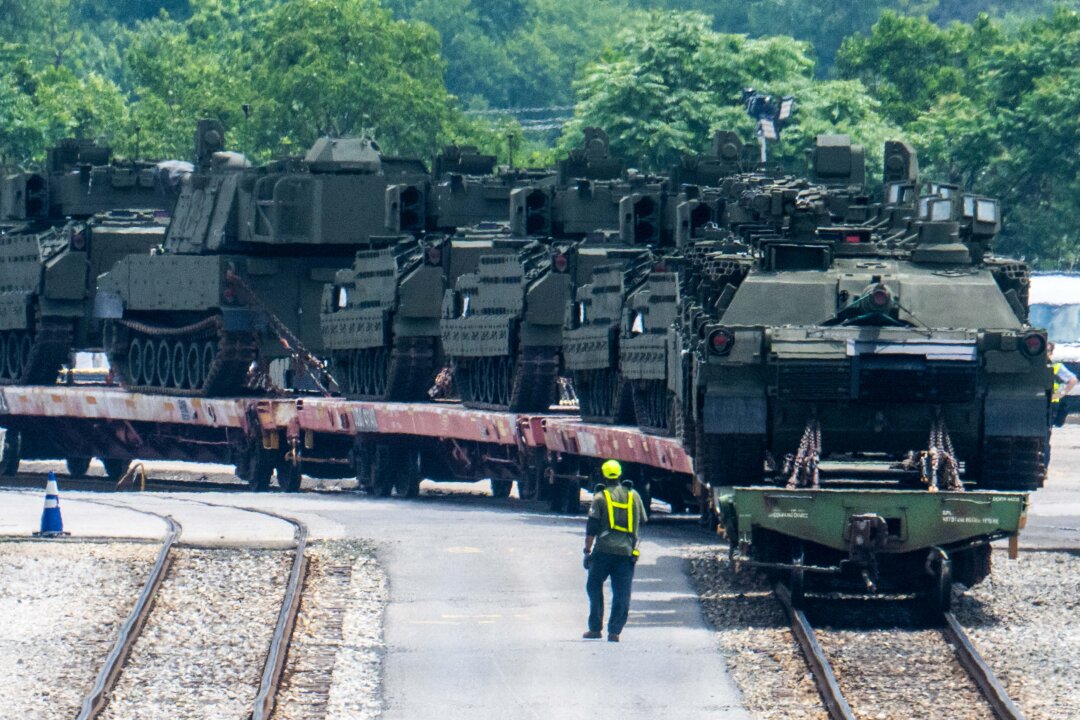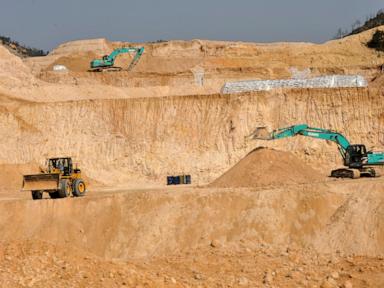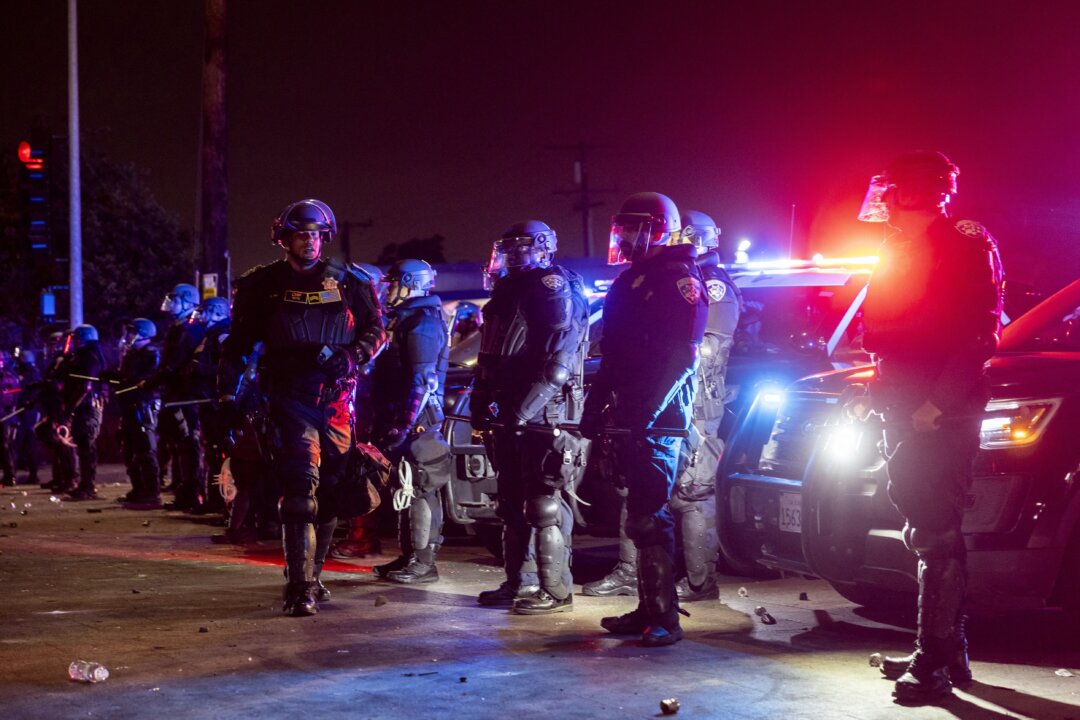Israel’s attack on Iran will no doubt set back Tehran’s nuclear ambitions. But among many Middle East obsessives, there’s a growing sense that the Israeli operation has the potential to lead to something much bigger: toppling Iran’s Islamist government.
Yeah, I’ll say it. Regime change.
It’s a phrase that normally sends shudders through a Washington and a Middle East chastened by the U.S. experiences in Iraq and Afghanistan. It’s a concept that has long left President Donald Trump extremely wary; his administration has already put out word it played no role in the attack. And the Israeli government hasn’t declared that regime change is its official objective.
Still, as I’ve listened to Israeli comments on the strikes and learned about their scope, including assassinations of top Iranian military officials, I’ve been struck by how they’re not dismissing the possibility of regime change, either. When you put the moves in the context of Israeli military actions since fall 2023 — strikes that have ousted, helped oust or decimated multiple “regimes” in Gaza, Lebanon and Syria — it doesn’t seem that far-fetched.
Ousting, or at the very least severely weakening, Iran’s regime also is something Israel can arguably do on its own; it doesn’t necessarily need American help on the offensive end.
In his many-layered remarks about the early Friday strikes, Israeli Prime Minister Benjamin Netanyahu said the operation against Iran “will continue for as many days as it takes to remove this threat.” He never limited the definition of that threat to Iran’s nuclear program.
That’s because the Israeli government sees Iran’s regime itself, not merely its nuclear and military infrastructure, as the real danger. Given that Iranian leaders, many of them fervent believers in extreme Shia Islamist ideology, have long threatened to annihilate Israel, that’s an unsurprising conclusion.
As reports came in about the strikes and assassinations, I reached out to several current and former U.S. officials as well as analysts asking if the Israelis’ real goal was regime change.
No one ruled it out, and this was a bipartisan crowd.
“Why not? Sure,” said one former senior U.S. official who dealt with Middle East issues during the Biden administration. “Wouldn’t that be grand?” I granted the former official, and others, anonymity to discuss a sensitive issue candidly.
Behnam Ben Taleblu, an analyst with the hawkish Foundation for Defense of Democracies, pointed out that the Israeli strikes went beyond just infrastructure and targeted Iran’s command and control, meaning the operation can’t simply “be defined as counterproliferation.”
Many in the Iranian diaspora — a famously fractious group where hopes of reforming Iran’s regime have long faded — are hoping this is the moment they’ve long awaited.
Reza Pahlavi, the former crown prince of Iran whose father, the shah, was ousted by Islamist revolutionaries in the late 1970s, called on ordinary Iranians to seize the day and Iranian security forces to break with the clerical leadership.
“The regime is weak and divided. It could fall,” he wrote on social media. “As I have told my compatriots: Iran is yours and yours to reclaim. I am with you. Stay strong and we will win.”
There are many, many unknowns.
Can Israel really carry out an operation that spurs regime change on its own?
Military analysts generally agree that Israel would need U.S. help to take out all of Iran’s nuclear infrastructure, much of which is buried deep underground. But if Israel pursues more assassinations, including of Iranian political leaders, a regime collapse isn’t out of the question.
Iran has already begun retaliating against Israel with drones, and Israelis need to determine how long they’re willing to endure such bombardments — if Iran can keep them up. The U.S. and some Arab states are almost sure to help Israel defend itself, as they have before.
Whether Iranians would turn on the regime is unclear. In some scenarios like this, you’d expect a rally-around-the-flag effect. But I’ve watched Iran for years, and my sense is that Iranians are so sick of the regime that many would welcome outside help in getting rid of it.
Their response could depend, however, on Israeli tactics.
“Strikes that are confined to military and nuclear targets will be a blow to the regime’s prestige, whereas strikes that cause broader economic and civilian harm could spur a different kind of popular response,” noted Michael Singh, who served on the National Security Council during the George W. Bush administration.
Even if the Iranian government survives this Israeli onslaught, it could be weakened enough that its demise comes sooner than it would have otherwise. But that could depend on how much pressure outside powers, especially the United States, continue to place on a regime whose anti-Americanism is foundational.
Already, there are calls from world capitals for Israel and Iran to avoid escalation. Given Israel’s pattern in places like Gaza and Lebanon, I wouldn’t bet on it heeding those demands. Sometimes the calls ring hollow anyway, especially if they come from Arab countries that would be thrilled to see Iran’s regime fall.
Even Trump, whom Netanyahu practically campaigned for, doesn’t seem able to influence Israel’s decisions.
He’s long been wary of getting entangled in Middle Eastern wars, and — publicly, at least — he’d urged Israel to wait until U.S.-Iran nuclear negotiations were further along. But Israel struck before another round of those talks was due to be held Sunday.
In his latest social media posts, Trump was using the threat of further Israeli strikes to urge the Iranians to make a deal that would constrain their nuclear program. (Iran has long claimed that its nuclear program is for peaceful purposes, not weapons.)
“Iran must make a deal, before there is nothing left, and save what was once known as the Iranian Empire,” Trump wrote. (He may have meant the Persian Empire, which hasn’t existed in quite a while, but that’s not the point.)
Even if the regime falls, there’s no reason to be certain that something better will replace it, current and former officials warn. A failed, leaderless Iranian state could be a breeding ground for all sorts of new problems. A much more militarized autocracy also could take over, one unabashedly determined to obtain a nuclear weapon.
“History tells us it can always be worse,” Jonathan Panikoff, a former U.S. intelligence officer, wrote in an online analysis. “Israel might find itself in a perpetual, ongoing, and far more intense war that is no longer in the shadows, as it has been for years.”
Israel, however, may not be thinking that many steps ahead, argued one U.S. official who has long worked on the Middle East.
"I don’t think they care enough about what comes next as long as it's too weak to threaten Israel," the official said.
.png)














 English (US)
English (US)